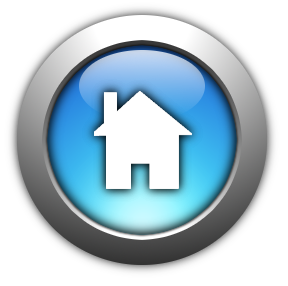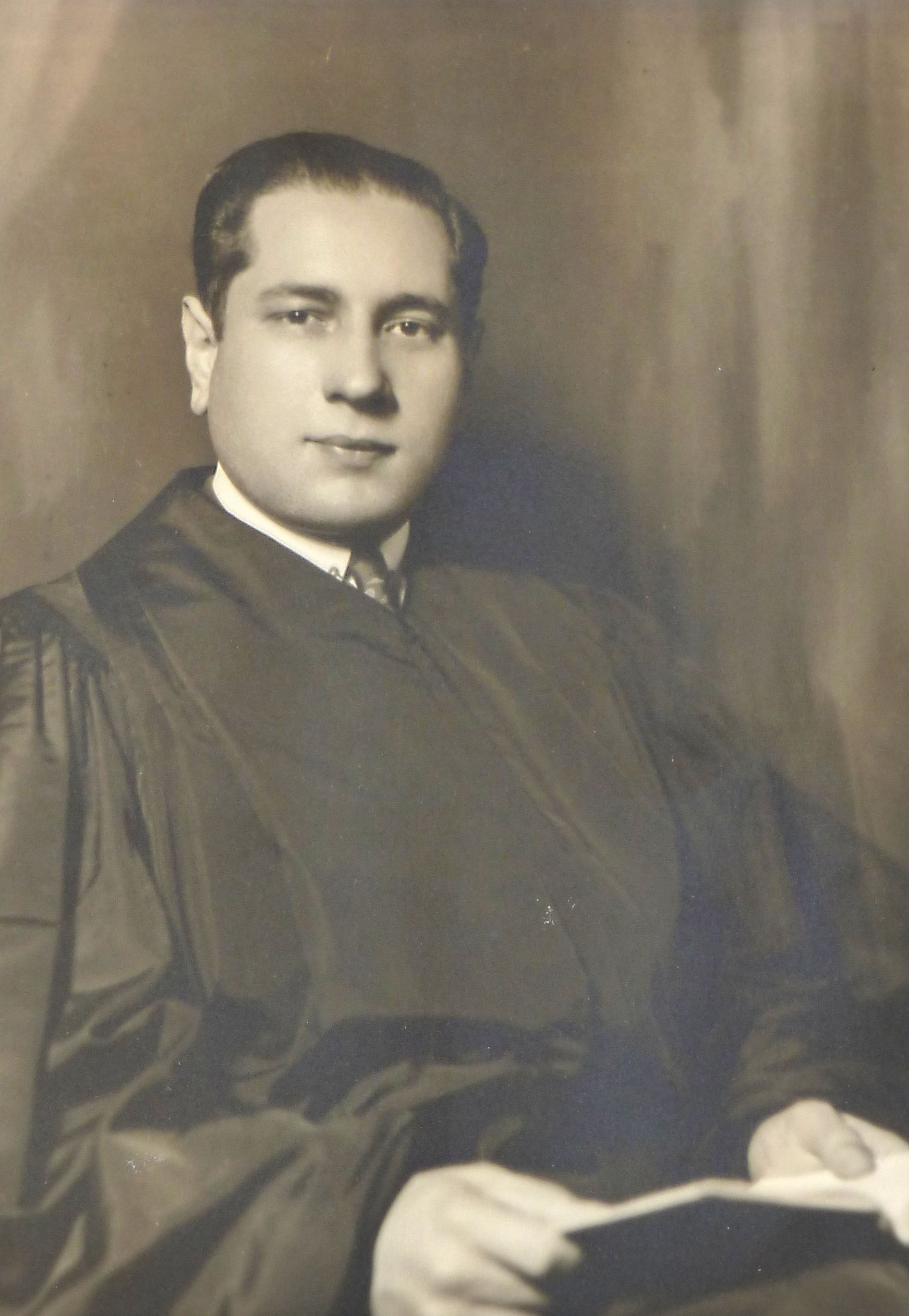Rabbi Samuel Ruderman
History of Temple Beth El
Background
*Jewish settlement of Fall River began in 1875, and increased during the 1880’s and ‘90’s during a period of high emigration rates of Jews from Eastern Europe to the U.S.
*Between 1884 and 1926, seven synagogues emerged across Fall River, including Temple Beth El, which was formed as “Congregation Beth El” in 1924, with the current building being built between 1928 and 1929.
*The first gatherings of Congregation Beth El met for services in a music hall on Franklin St. in 1926. In 1927, a wooden church was purchased and converted into a synagogue; after only 5 months, this building was burned to the ground in the “Great Fire” of 1928. Some members rushed into the burning building and managed to salvage a number of the Torah scrolls and the magnificent menorahs that grace either side of our present bima.
Current Building on High Street
*In March 1928, a house and lot were purchased by Congregation Beth El on the corner of High and Locust Streets (our current location) from Mr. Abraham Zais. The house was razed, and a young architect, Samuel Dubitsky, was engaged to design and oversee the construction of a new temple.
*The cornerstone was laid on October 28, 1928, and the building, named Temple Beth El, was dedicated on Sept. 22, 1029.
*Shortly after this, land was purchased for the Temple Beth El Cemetery.
*Temple Beth El reached its zenith during the 1950’s, under the spiritual leadership of Rabbi Samuel S. Ruderman when its membership swelled to over 600 families, with 450 students in the Hebrew school. During these years a large school building and auditorium were built. Also during this period there was a celebrated series of adult educational forums, called the “Adult Education Series,” featuring internationally-recognized scholars and public speakers. This forum was open to subscription by the wider Fall River public. Both Jews and non-Jews packed the hall for these lectures, enjoying this unique opportunity in Fall River to widen their horizons and enrich their minds.
*With the decline of the textile industry and related businesses in Fall River, the Jewish population of Fall River has, sadly, also declined. During the 60’s and 70’s, the sons and daughters of the Jewish families who had prospered in Fall River went off to the best colleges and universities, and had the chance to experience life in larger metropolitan areas. Most did not return to settle and raise their families here. Like synagogues and churches all across the United States, we are wrestling with how to meet the unique challenges of contemporary society’s approach to spirituality and religious and institutional affiliation. However, we still have a wonderful core of warm, down-to-earth communally- and spiritually-engaged members, and we have recently had a small upswing in Temple membership, largely due to our new spiritual leaders, Rabbi Mark Elber and Cantor Shoshana Brown (see below under “Spiritual Leadership”), who have revived the Temple Hebrew School after many years of dormancy.
*Temple Beth El has always had a vibrant Sisterhood (and in the past had a Brotherhood as well). The Sisterhood continues to support the Temple in many ways, with a special emphasis on sponsoring such events as the annual Chanukah party and the 2nd Night of Passover Community Seder, and maintaining the Temple Judaica gift shop.
*Temple Beth El houses an excellent Jewish library, holding thousands of books, and is still adding new selections. Members have full borrowing privileges.
Current Spiritual Leadership
Following the retirement of Rabbi William Kaufman, who led Temple Beth El from 1982-2006, and the retirement of Cantor Richard Wolberg, who led the congregation’s prayers from 1976-2012 (also acting as spiritual leader for his last six years at the Temple), Temple Beth El spent a year searching for a new spiritual leader for the community.
Instead of one new spiritual leader, we were blessed with finding two, Rabbi Mark Elber and Cantor Shoshana Brown—a husband and wife team! (You may read more about the rabbi and cantor under our website’s heading, Clergy Bios.)
Cantor Brown and Rabbi Elber have brought a new vitality to our congregational life. They have emphasized the essential participatory nature of prayer, providing many transliterations of the Hebrew prayers so that all can enjoy singing along, and offering two levels of adult Hebrew literacy classes (both during the day and in the evening). At Kabbalat Shabbat services (Friday nights), “Cantor Shoshana” accompanies our service with her folk guitar-playing, and on Shabbat mornings both the rabbi and cantor hold an in-depth discussion of the Torah portion of the week (rather than give a “sermon”). The Shabbat morning service is followed by a light luncheon-kiddush, and those who stay enjoy the camaraderie, fellowship, and friendships that develop through this time together.
On the first Friday of every month, we have a later Kabbalat Shabbat service (at 6:30 pm rather than the usual of 5:30 pm), which we call “Friday Night Live.” This service features more music, some new melodies, and sometimes a guest speaker or musician. This is our designated time for trying out new things, such as praying in a semicircle in our social hall instead of in straight pews in our chapel, or using the words of an innovative prayer book. It has been very popular!
Rabbi Elber and Cantor Brown have started a “Chai Mitzvah” group, which includes a small group of congregants who have elected to study and deepen their commitment to mitzvot and Jewish tradition and rituals over the course of a year. Some members of our Chai Mitzvah group are also in the process of converting to Judaism, and we feel such admiration and delight in having them in our midst!
Cantor Brown and Rabbi Elber have also revived our Hebrew School, including training for bar and bat mitzvah. They also offer many opportunities for adult learning, including our Monday morning adult education class, Hebrew classes, private conversion classes, and special learning events around Jewish holidays and Shabbatonim.
Temple Beth El’s Denominational Affiliation
When the founders of Congregation Beth El first gathered, they desired to form a “progressive and Conservative congregation” in Fall River. (Prior to this, all the congregations in Fall River were Orthodox.) For many decades, Temple Beth El was a dues-paying member of United Synagogue, the umbrella institution for Conservative congregation across America. The Conservative approach to Jewish life (in theory) is one that honors the obligation to follow halakhah (“Jewish law”), but believes in free intellectual enquiry with regard to Jewish sacred texts, and stands by the necessity of adapting halakhah to meet the insights and needs of the current era (for example, the full enfranchisement of women by counting them in a minyan [prayer quorum]; the right of same-sex couples to be married in a sacred ceremony; the ordination of women as rabbis and cantors).
Temple Beth El was among the first Conservative congregations in the country to call women up to the bima for aliyot, to allow women to read from the Torah, to celebrate b’not mitzvah, and to count women in a minyan. Currently, we have our first woman cantor.
Because of the dwindling numbers of Jews in the Fall River area, however, and the need to steward our economic resources, and also because Temple Beth El wanted to find the best clergy match for the congregation during our recent search, the congregation decided to become an “independent” Conservative congregation. What does this mean? It means that we are no longer members of United Synagogue, and we are no longer bound to hire our clergy strictly through the aegis of the placement offices of the Rabbinical Assembly and Cantors Assembly (affiliate organizations of United Synagogue). Nevertheless, we still adhere to a Conservative philosophy, use the Conservative siddur (prayer book) and chumash (book of Torah and Haftarah readings); and conduct our Temple life according to the strictures and traditions of Conservative Judaism.
Both Rabbi Elber and Cantor Brown have lived for decades as observant Conservative Jews—however, they both completed their studies for ordination under the aegis of the Alliance for Jewish Renewal (see clergy bios for further information and links related to Jewish Renewal). Their professional clergy affiliation is with Ohalah. Cantor Brown and Rabbi Elber have successfully adapted many practices of “Renewal Judaism” to meet the challenges of Jewish life today, weaving them together with Conservative practices and standards. “Like the Sages scrambling to ensure the survival of Judaism after the Destruction of the Second Temple, when most of Rabbinic Judaism took shape,” says Cantor Brown, “We need to both honor the Tradition and keep our ears to the ground to hear where the people are and what they need. Rabbi Mark and I believe that a combination of Conservative tradition and Renewal Judaism is a perfect match for Temple Beth El. We are living in a time of great flux, and being an institutionally-“independent” congregation gives us the latitude to both integrate and innovate to meet the challenges of the 21st century.”



